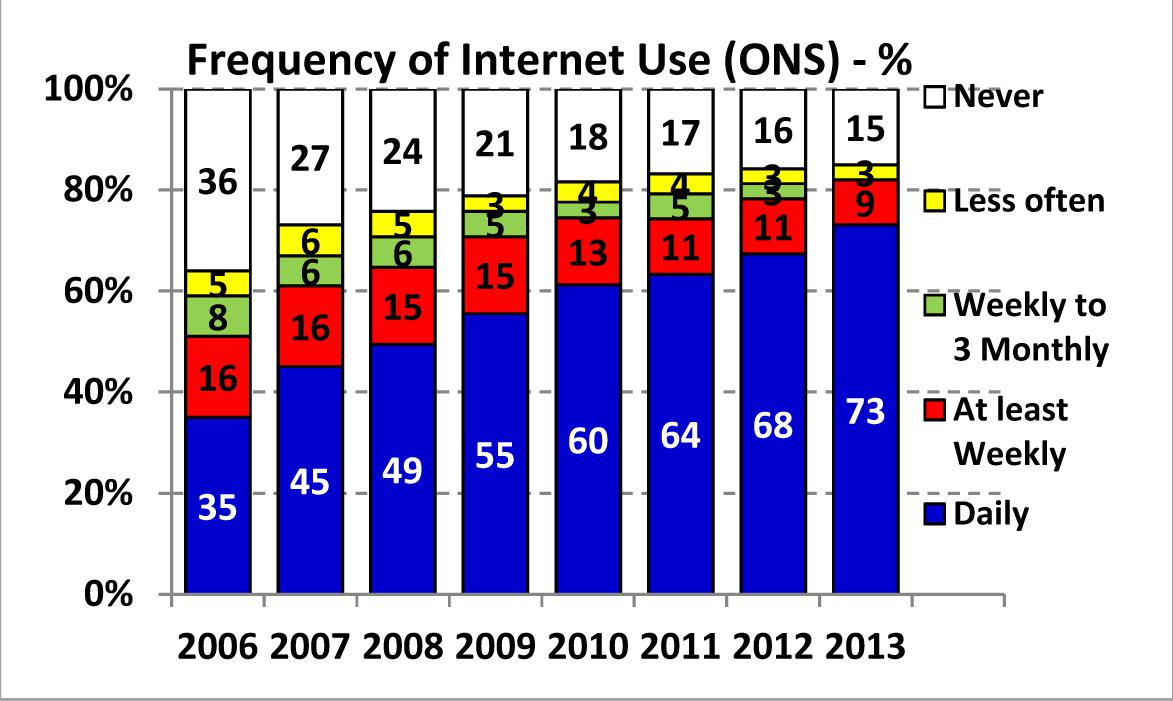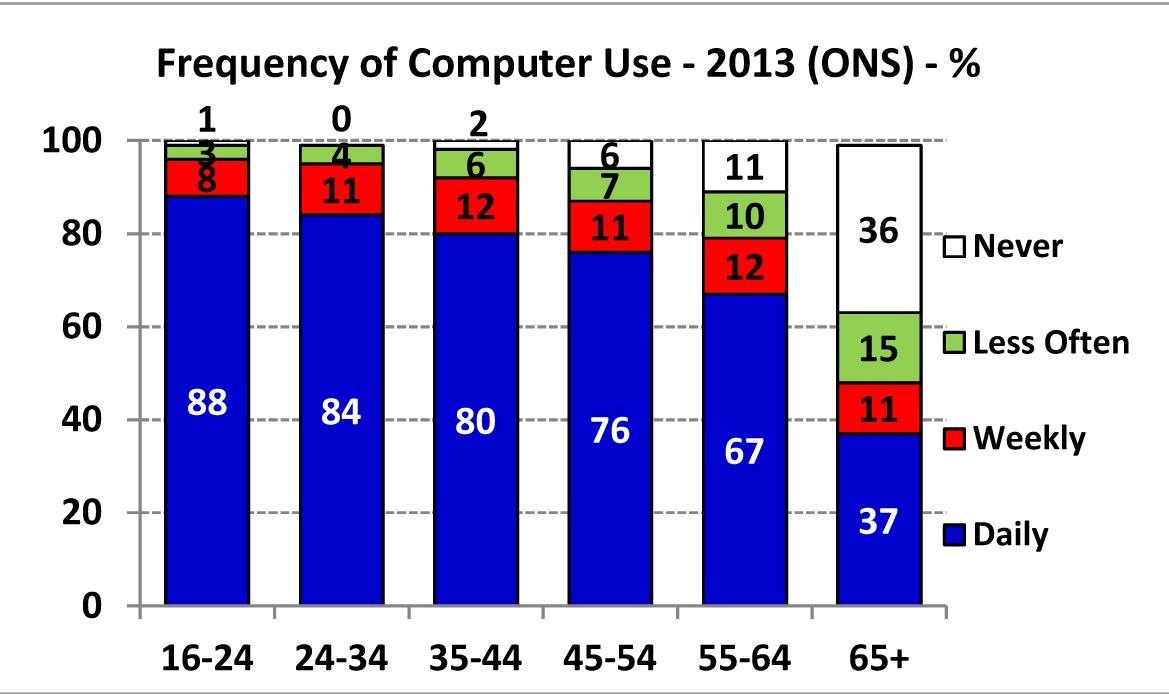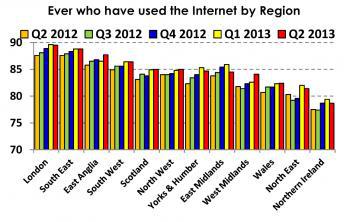Are we so bedazzled by new media that we are losing possible legacies?
You and I know that we can make statistics say whatever we like. But check out this from Andrew Papworth: one in four adults don’t use the Internet every day. Astonishing huh? Are you alienating your donors by denying them the way they want to give?
- Written by
- Andrew Papworth
- Added
- May 15, 2012
Most people who work in charity fundraising or marketing departments will find it quite hard to imagine a life without computers, the Internet, smartphones and those seemingly indispensable apps. It is all too easy to think that what goes for you goes for the rest of the population too.
The latest data from the Office of National Statistics shown below are salutary. The top chart shows that – whilst daily use of the Internet has more than doubled in the last six or seven years – still more than one in four adults do not use it every day and more than half of the rest never use it. Daily use is not a very stringent measure – especially to someone who feels deprived if a minute passes without some kind of digital connection.
The second chart confirms what we all know intellectually, but sometimes seem to forget in practice: computer use is still very highly age-related. It shows that a third of fifty-five to sixty-four-and almost two-thirds of over sixty-fives either never use a computer or do so less often than once a day (and women are less frequent users than men).


These empty nesters and retirees – particularly women – are highly likely to be very important potential donors and sources of legacies for most charities. Yet, how often do we see ads in which the only way of contacting the charity is online? It doesn’t make sense. Similar patterns apply to the use of mobile phones, which means that all those ads which offer text-giving as the only means of response are also missing out on many of the oldies.

Finally, whilst on the subject of the dangers of over-reliance on the Internet, it is worth remembering that – as the chart on the right shows – use of the Internet remains very skewed to the southern part of England and is particularly low in Northern Ireland, the North-east and in Wales – some of these areas have seen a downturn in use. How is it where you are?


















